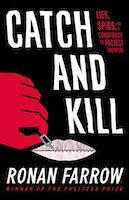Review: Wanderers
/3 stars. PHEW - that was a marathon! It was a race against the clock for me to finish this one before it got whisked away back to the library, so I think I'll always sort of associate this with an overwhelming/unreasonable deadline, lol. But I did it! And in this miserable year of our lord 2020, too! An appropriate read, though:
Wanderers begins when a highly advanced computer called Black Swan detects an anomaly in Pennsylvania - a group of individuals who appear to be "sleepwalking" and can't be stopped (if they stop, or are stopped, they explode). Meanwhile, an unfortunate consequence of climate change releases an incurable virus called White Mask, triggering, well, the apocalypse. Following the growing group of "walkers" through a dying America, Wanderers explores questions around human fear, heroism and resilience in varied, unforgettable ways.
I should really work on lowering my expectations when a book is compared to Stephen King. Obviously, this book wouldn't exist without The Stand, but if it's trying to be a NEW The Stand, it fails. Maybe it isn't, maybe it's a love letter or a tribute or a modern spin on the core of the story. But I was disappointed reading Wanderers because it was so loudly hyped as Kingish! Kingly, whatever! M-O-O-N, that spells misplaced praise. Not because Chuck Wendig is bad, but because he isn't Stephen King. No one is.
Beyond that major disconnect, I do have a few other isolated complaints. The villains are too cartoonish, the heroes and heroines too uncomplex. So many of the nuances and intricacies of America's divisions are lost here. Perhaps the messiness of it all wouldn't lend itself to a pretty narrative, but I'm convinced this story could've been told with more depth and understanding.
(That being said, maybe Wendig wasn't going for depth or understanding - maybe he was pursuing a more cathartic, extreme, everything is black-and-white approach, as in, there are no words dedicated to why the villain is a villain - he just is, like Disney's Ursula or something, which I have to admit, is kind of fun. Or maybe Wendig just needed to work a little more on distinct characterization, going deep instead of wide. I dunno. I've heard it's disgustingly difficult to write a book, by the way.)
Also - I know - I get it - I'm aware of why there was a pregnancy subplot. But I'm so over it as a plot device. Shana's whole character in particular felt forced and wide of the mark. And Benji and Sadie had zero chemistry.
ANYWAY. There is a lot here I really did enjoy and appreciate. Wendig plays with religion, racism, love, artificial technology, climate change, family dynamics, parenthood, addiction, aging, depression and mental illness, politics, partisanship and loss of innocence, plus a little commentary on social media (as a treat), all through the lens of what it means to "face the end." I love Big Themes like that. Each character deals with his or her own shit differently, which is nice, and there ARE a couple of delightfully horrific and well-written moments throughout (the chapter "The Life and Death of Jerry Garlin" comes to mind. That's when I really got hooked).
All in all, I'm really glad to have read it. Wanderers helped me process what is ultimately a completely unprocessable year (by triggering an EXISTENTIAL CRISIS AHHH). I enjoyed the little details and the references and the ruminations of my favorite character, Pete Corley. I was amazed by the unpredictable-ness of it all. I'm excited to have the hefty reading experience under my belt. I'm dying to talk about it with everyone!! And I truly, truly admire the way characters spiraled around each other before clashing in PERFECT ways.
For the record, I agree. We lost Prince, we lost Bowie, and the world went to shit. Coincidence? I think not.
Wanderers on: Amazon | Bookshop.org | Goodreads










